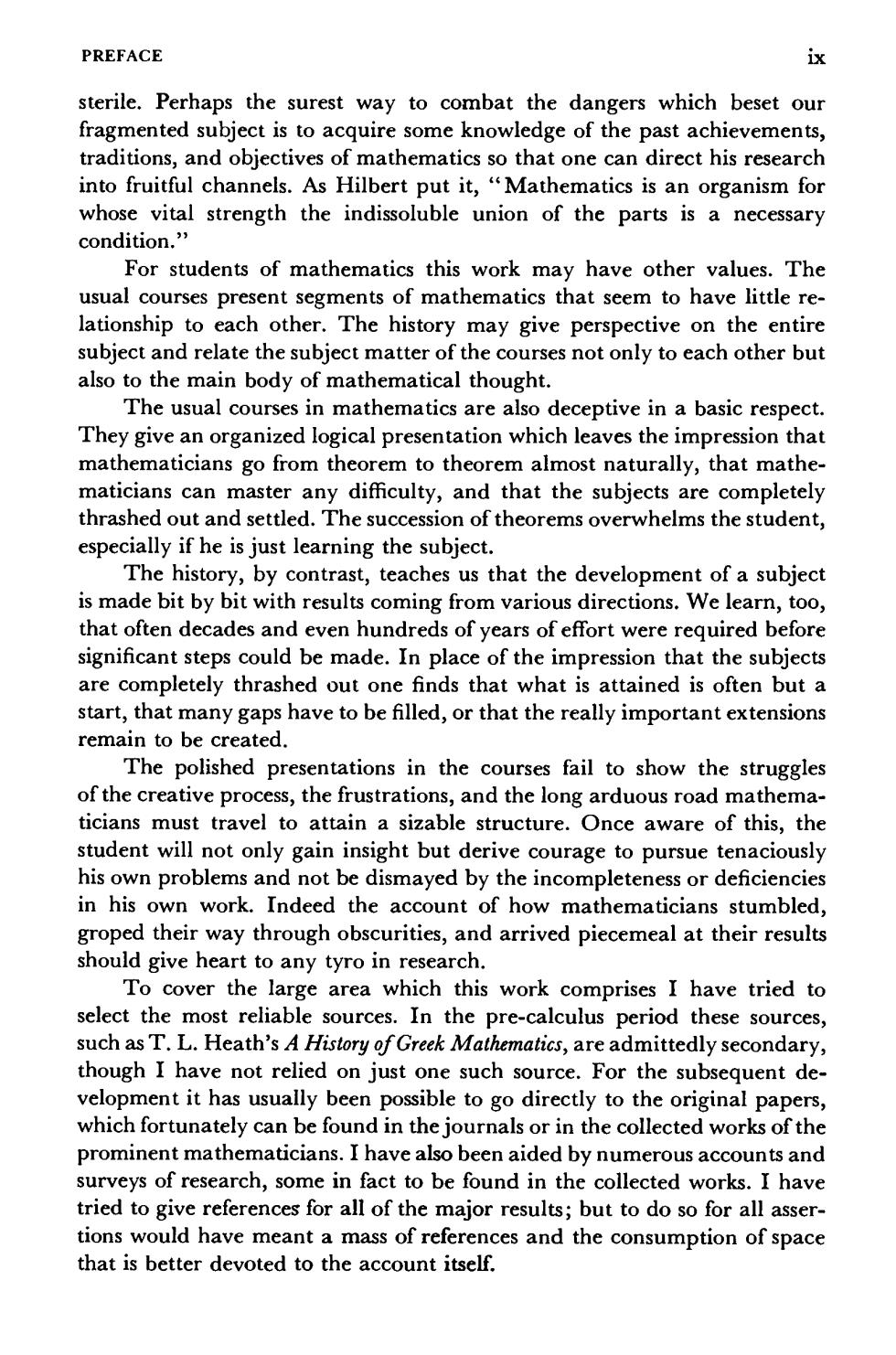正在加载图片...

PREFACE ix sterile.Perhaps the surest way to combat the dangers which beset our fragmented subject is to acquire some knowledge of the past achievements, traditions,and objectives of mathematics so that one can direct his research into fruitful channels.As Hilbert put it,"Mathematics is an organism for whose vital strength the indissoluble union of the parts is a necessary condition.' For students of mathematics this work may have other values.The usual courses present segments of mathematics that seem to have little re- lationship to each other.The history may give perspective on the entire subject and relate the subject matter of the courses not only to each other but also to the main body of mathematical thought. The usual courses in mathematics are also deceptive in a basic respect. They give an organized logical presentation which leaves the impression that mathematicians go from theorem to theorem almost naturally,that mathe- maticians can master any difficulty,and that the subjects are completely thrashed out and settled.The succession of theorems overwhelms the student, especially if he is just learning the subject. The history,by contrast,teaches us that the development of a subject is made bit by bit with results coming from various directions.We learn,too, that often decades and even hundreds of years of effort were required before significant steps could be made.In place of the impression that the subjects are completely thrashed out one finds that what is attained is often but a start,that many gaps have to be filled,or that the really important extensions remain to be cre ated The polished presentations in the courses fail to show the struggles of the creative process,the frustrations,and the long arduous road mathema- ticians must travel to attain a sizable structure.Once aware of this,the student will not only gain insight but derive courage to pursue tenaciously his own problems and not be dismayed by the incompleteness or deficiencies in his own work.Indeed the account of how mathematicians stumbled, groped their way through obscurities,and arrived piecemeal at their results should give heart to any tyro in research. To cover the large area which this work comprises I have tried to select the most reliable sources.In the pre-calculus period these sources, such asT.L.Heath's A History of Greek Mathematics,are admittedly secondary, though I have not relied on just one such source.For the subsequent de- velopment it has usually been possible to go directly to the original papers, which fortunately can be found in the journals or in the collected works of the prominent mathematicians.I have also been aided by numerous accounts and surveys of research,some in fact to be found in the collected works.I have tried to give references for all of the major results;but to do so for all asser- tions would have meant a mass of references and the consumption of space that is better devoted to the account itself